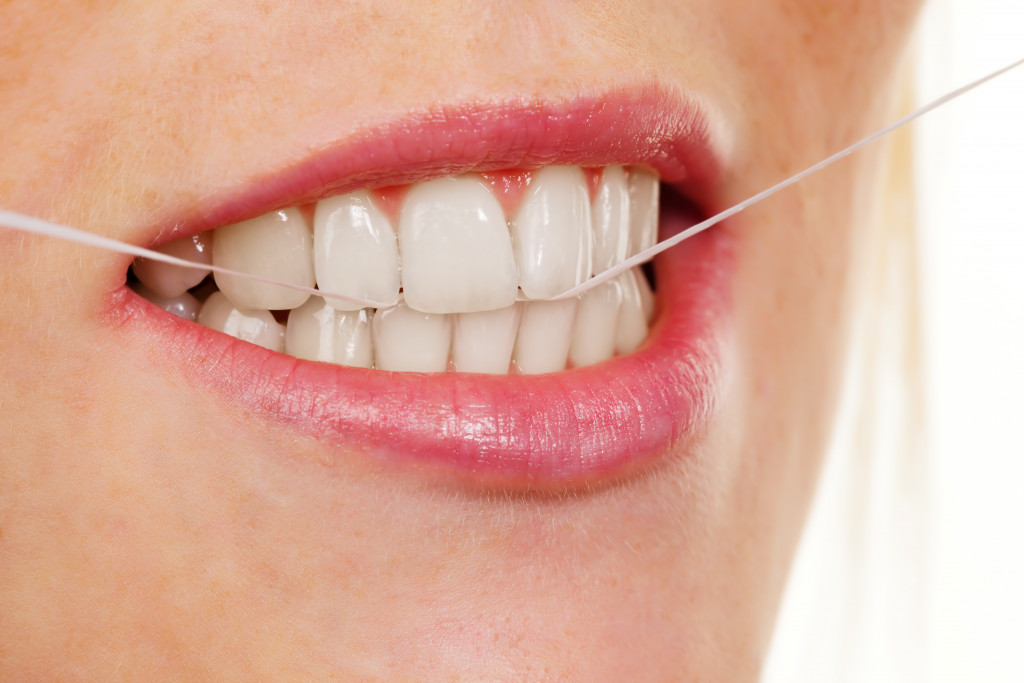It is no secret that your oral and physical health are closely related. While you may think of your dental hygiene routine as something separate from the rest of your body, your mouth can be an important indicator of potential health problems. From gum disease to diabetes, poor oral hygiene can severely affect your overall well-being. This guide looks at four links between oral and physical health and how they impact one another.
1. Poor Dental Health and Systemic Diseases
A healthy smile goes beyond your white teeth and fresh breath — it’s also an essential sign of good health. In fact, research shows that people with poor dental hygiene are more likely to develop systemic diseases such as heart disease, stroke, and diabetes. Poor dental hygiene means increased harmful bacteria, which can spread to your other body parts and lead to these more severe illnesses.
Visiting the orthodontist office regularly is vital for you to maintain good dental and overall health. Regular checkups can help you detect potential issues early on and prevent them from escalating into more serious, systemic diseases. During a routine checkup, your dentist will examine your teeth for any signs of decay or periodontal disease. They may also take X-rays to detect any underlying issues that may be present. In addition, the dentist will check for signs of gum disease and may recommend preventive treatments such as fluoride rinses or sealants to help keep your teeth strong and healthy.
2. Gum Disease and Heart Conditions
Your gums are just as important as your teeth when maintaining good oral health. When bacteria proliferate in your mouth can cause gum disease (periodontitis). This condition is linked to heart conditions such as coronary artery disease, stroke, and an increased risk of a heart attack. The inflammation caused by gum disease increases your risk for cardiovascular diseases, so brushing twice a day and flossing regularly is key—not only for a healthy smile but also for a healthy heart.
To prevent gum disease and protect your heart, it’s important to practice good oral hygiene. Brush twice a day with fluoride toothpaste and floss daily using an interdental brush or dental floss. Make sure you clean between all of your teeth, as well as along the gums. You may also consider incorporating an antiseptic mouthwash into your daily routine.
If you already have gum disease, then it’s important to get treatment as soon as possible. Treatment may include a deep cleaning of teeth and gums to remove bacteria and plaque. Your dentist may also recommend antibiotics or other medications to help reduce inflammation and fight infection. In some cases, surgery may be necessary.
3. Undiagnosed Cavities and Heightened Risk of Diabetes

Tooth decay can lead to cavities that, if left untreated, can spread to the surrounding teeth and gums. Research has found a connection between diabetes and undiagnosed cavities. Even small cavities can indicate an increase in blood sugar levels, which puts you at greater risk for developing type 2 diabetes—especially if other risk factors such as obesity are present. That’s why it’s important to get regular checkups with your dentist so any signs of dental issues are discovered early on.
It is important to maintain good oral hygiene, as it can help protect against diabetes and dental issues. Brushing your teeth twice daily (for at least two minutes) and flossing once per day are recommended by the American Dental Association. Additionally, reducing added sugars in your diet can help prevent tooth decay. Eating healthy foods, such as fruits and vegetables, helps to check your blood sugar levels.
In addition to regular brushing and flossing, visiting the dentist twice a year is essential for identifying any cavities or other dental issues before they become more serious. If your dentist does detect any signs of tooth decay or damage, it is important to follow their treatment plan. This includes having necessary procedures, such as fillings or root canals, done and taking any prescribed medications for oral health care.
4. Oral Cancer and Nutritional Deficiencies
Oral cancer is a severe condition that affects thousands of people each year. While several risk factors are associated with this type of cancer, such as smoking and drinking alcohol, poor nutrition can also play a role. A diet lacking in fruit and vegetables increases your chances of developing oral cancer by reducing the antioxidants needed to fight off disease-causing bacteria. To protect yourself against this type of cancer, it’s crucial to maintain a balanced diet that is rich in essential vitamins and minerals.
Vitamins and minerals found in fruits, vegetables, and other foods are important for a healthy immune system. Vitamin A is particularly essential as it helps protect your body against certain infections that can lead to cancer. Vitamin C is also beneficial as it has antioxidant properties that help fight off free radicals that may cause cell damage. Additionally, you should monitor folate and zinc levels to ensure adequate nutrient absorption.
Inadequate levels of these essential vitamins and minerals may make your body more vulnerable to oral cancer. People who have a poor diet or require supplements due to malabsorption conditions should take extra precautions regarding their nutritional intake. Consult your doctor if you believe your diet may be insufficient, and consider taking a multivitamin to ensure you receive all the necessary vitamins and minerals for optimal health.
In Summary
Maintaining good oral hygiene is essential for optimum overall health and well-being. Following the simple steps outlined above, you can protect your teeth and gums and reduce your risk of systemic diseases, heart conditions, diabetes, and oral cancer. Remember that a healthy smile means a healthier you!
